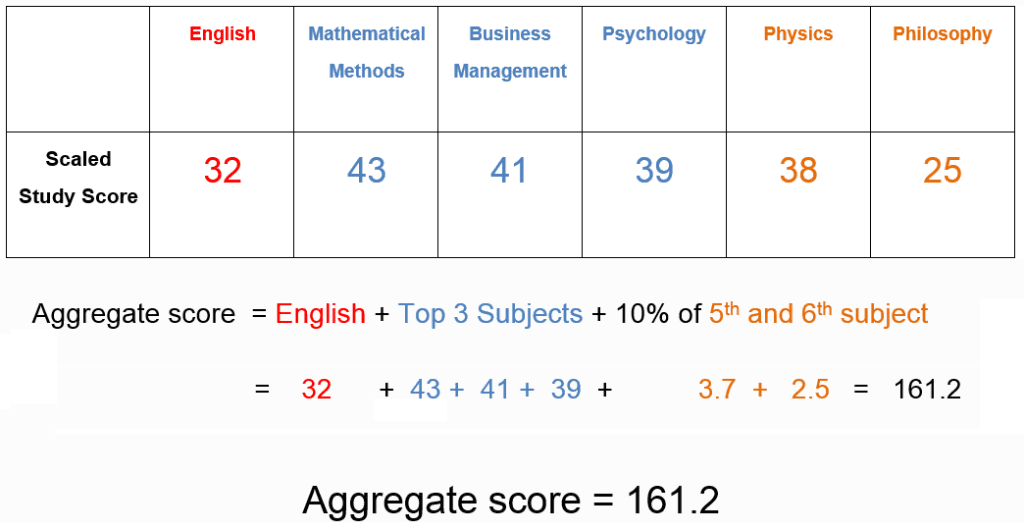If you're trying to find out how to calculate an aggregate score, you've come to the right place. In this article, we'll go through everything you need to know about calculating an aggregate score, including what an aggregate score is, why it's important, and how to calculate it step-by-step.
Table of Contents
What is an Aggregate Score?
An aggregate score is a cumulative score that's calculated by combining multiple scores together. This is typically done in situations where there are multiple assessments or tests that all contribute to an overall score. For example, if you're a student and you have multiple assignments and tests that make up your final grade, your aggregate score would be calculated using all of those individual scores combined.
Why is Calculating an Aggregate Score Important?
Calculating an aggregate score is important for a few different reasons. Firstly, it allows you to see the bigger picture of your performance or progress. Rather than just looking at individual scores, an aggregate score takes everything into account and gives you a more accurate representation of your overall performance. Additionally, for things like job applications or university admissions, an aggregate score can be used to compare applicants more fairly, since it takes into account multiple factors rather than just one.
How to Calculate an Aggregate Score – Step by Step
- Determine the weighting of each score: Before you can calculate an aggregate score, you need to know the weighting of each score. This is typically represented as a percentage, and it indicates how much each score contributes to the overall aggregate score. For example, if you have three scores and they are weighted 40%, 30%, and 30%, respectively, then the first score contributes 40% of the aggregate score, while the other two contribute 30% each.
- Convert each score to a percentage: If your scores are already in percentage form, you can skip this step. But if not, you'll need to convert each score into a percentage. To do this, simply divide the score by the maximum possible score and multiply by 100. For example, if you got 85 marks out of 100 on a test, your percentage score would be 85%.
- Multiply each percentage score by its weighting: Once you have the percentage score for each assessment, you need to multiply it by its weighting. For example, if your first score was weighted 40% and you got a percentage score of 85%, you would multiply 0.4 by 85 to get 34.
- Add up all the weighted scores: Finally, add up all the weighted scores to get your aggregate score. For example, if you had three scores with weightings of 40%, 30%, and 30%, and you got weighted scores of 34, 25.5, and 22.5, respectively, you would add those up to get an aggregate score of 82.
Tips for Calculating an Aggregate Score
- Double-check the weighting of each score before you begin calculating. Make sure you have the correct percentages for each assessment.
- Keep track of your calculations as you go. This will help you avoid errors and make sure you don't miss anything.
- If you're working with a lot of scores, consider using a spreadsheet program to help you keep track of everything.
- If you're unsure about how to weight each score, ask your instructor or supervisor for guidance.
Conclusion
Calculating an aggregate score might seem daunting, but once you understand the process, it's actually quite simple. By following the steps outlined in this article, you can calculate an accurate and meaningful aggregate score that takes into account all of the assessments or tests that contribute to your overall score.
FAQs
- What is the difference between an aggregate score and an average score?
An average score is calculated by adding up all of the scores and dividing by the number of scores. An aggregate score, on the other hand, takes into account the weighting of each score and combines them into a single score.
- How do I know the weighting of each score?
The weighting of each score should be provided by your instructor, supervisor, or whoever is responsible for calculating the aggregate score. If you're unsure, don't hesitate to ask.
- Can I calculate an aggregate score for anything other than academic assessments?
Yes! You can use the same process to calculate an aggregate score for anything that involves multiple assessments or tests. For example, you could use it to calculate an aggregate score for job performance evaluations.
- Is an aggregate score the only thing that matters?
No, an aggregate score is just one piece of the puzzle. It's important to also take into account other factors, such as personal characteristics, experience, and qualifications.
- Can an aggregate score be negative?
No, an aggregate score cannot be negative. If a score is negative, it means there was a mistake in the calculation.




